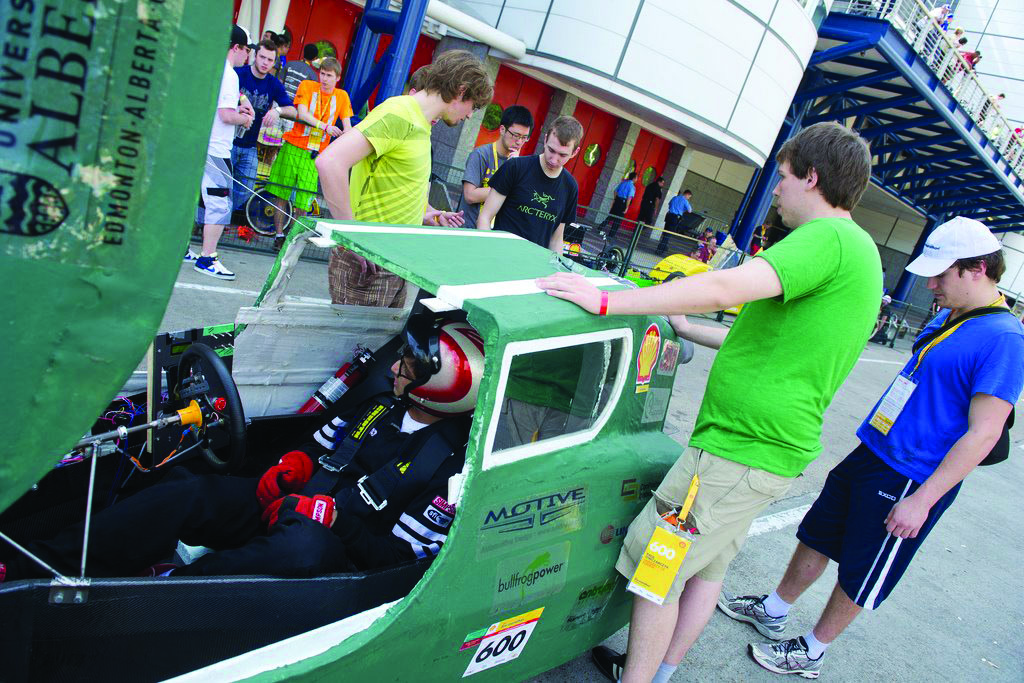There’s an underground garage in the University of Alberta’s engineering building that has a caged-off area. That’s where the mechanical engineering students work.
In its corner sits what looks like a go-kart’s small black body, and next to it, a green shell covered in stickers like stock-car sponsorships. But this single-seater isn’t for racing. Though some of its driving and handling is similar to a go-kart, the miniature car built by the U of A’s Eco-Car club serves a much greater purpose than speed.
Since officially forming the club in 2010, these 40 students have dedicated their extracurricular time to building from scratch a vehicle that emits no carbon waste. Originally, the body was made of Styrofoam and fibreglass but now the new and improved one consists of a flax and hemp composite biomaterial that’s insulated by a soy-based foam.
The project was conceived when 21-year-old project manager and fifth-year mechanical engineering student Matthew Sponiar saw a University of Calgary team dedicated to creating a solar-powered car.
But, says Sponiar, “we didn’t want to be seen as the U of C’s little brother project.” To be distinct, the team decided to look at using compressed cylinders of hydrogen to charge the battery and make the two small motors (one on each rear wheel) run.
After two years of refining the project, the team won second place in the hydrogen fuel cell urban division at the Shell Eco-Marathon in Houston, a just-over-10-kilometre marathon where competitors each drive at least 24 km/h and measure overall fuel efficiency. But its biggest challenge is still to come, as it hopes to compete at Australia’s World Solar Challenge in October 2013. Hydrogen-based vehicles can be enrolled in a non-competitive class but the team has a lot of work to do to get to that point. In the upcoming school year, it plans to redesign the car so that it can travel 3,000 km from the northern tip of Australia to its southern edge in under a week without stopping to fuel up. Teammates will also decide whether hydrogen will be the most effective fuel or whether they should change to another option like methanol or biodiesel.
Sponiar sees it as a launching pad for innovation. “Most of us here will probably wind up working in the oil industry,” he says, “but because we have this background, we’re going to be approaching our jobs with a different mentality, and hopefully some big changes will come out of that.”
